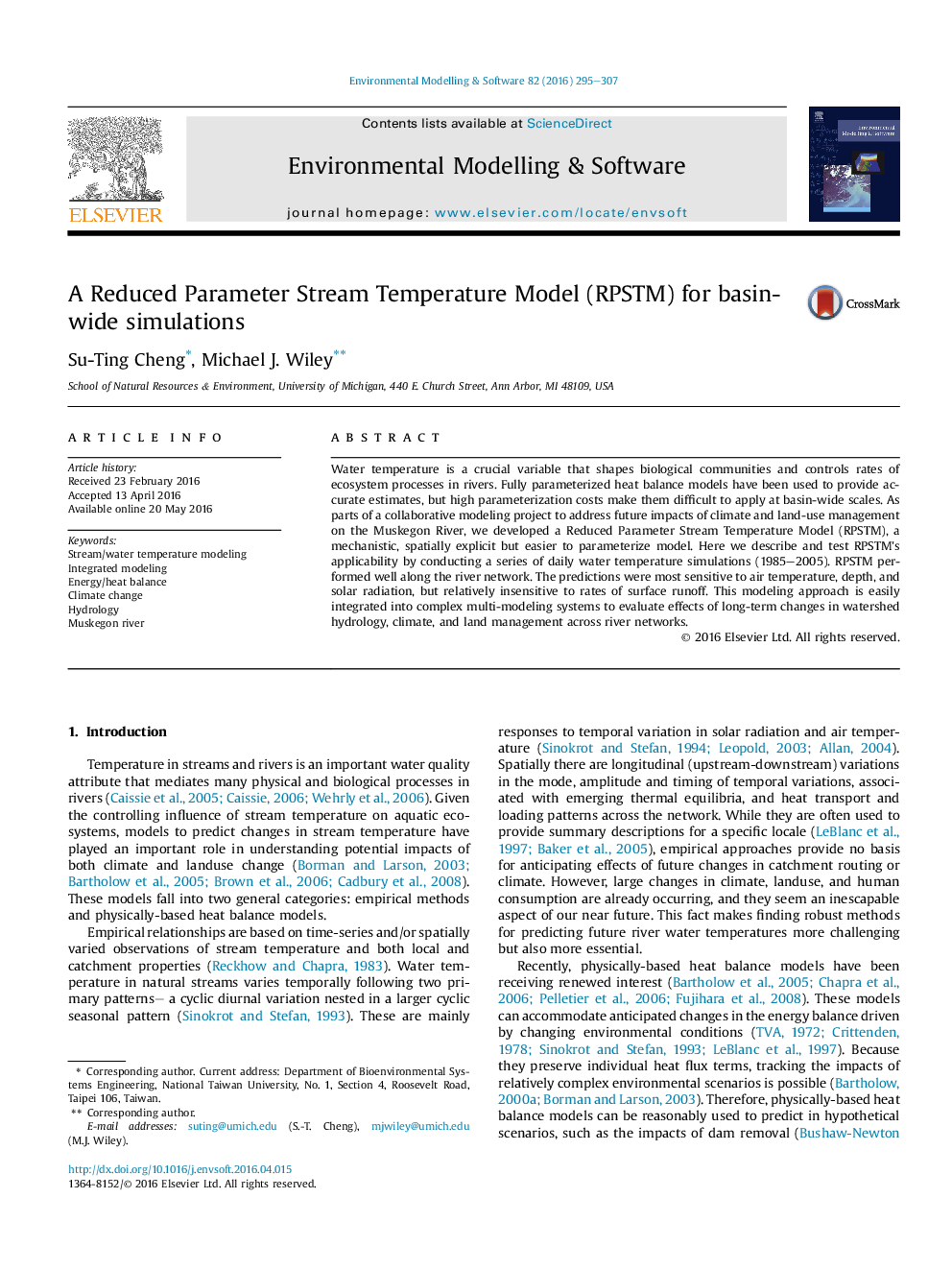| Article ID | Journal | Published Year | Pages | File Type |
|---|---|---|---|---|
| 6962466 | Environmental Modelling & Software | 2016 | 13 Pages |
Abstract
Water temperature is a crucial variable that shapes biological communities and controls rates of ecosystem processes in rivers. Fully parameterized heat balance models have been used to provide accurate estimates, but high parameterization costs make them difficult to apply at basin-wide scales. As parts of a collaborative modeling project to address future impacts of climate and land-use management on the Muskegon River, we developed a Reduced Parameter Stream Temperature Model (RPSTM), a mechanistic, spatially explicit but easier to parameterize model. Here we describe and test RPSTM's applicability by conducting a series of daily water temperature simulations (1985-2005). RPSTM performed well along the river network. The predictions were most sensitive to air temperature, depth, and solar radiation, but relatively insensitive to rates of surface runoff. This modeling approach is easily integrated into complex multi-modeling systems to evaluate effects of long-term changes in watershed hydrology, climate, and land management across river networks.
Related Topics
Physical Sciences and Engineering
Computer Science
Software
Authors
Su-Ting Cheng, Michael J. Wiley,
